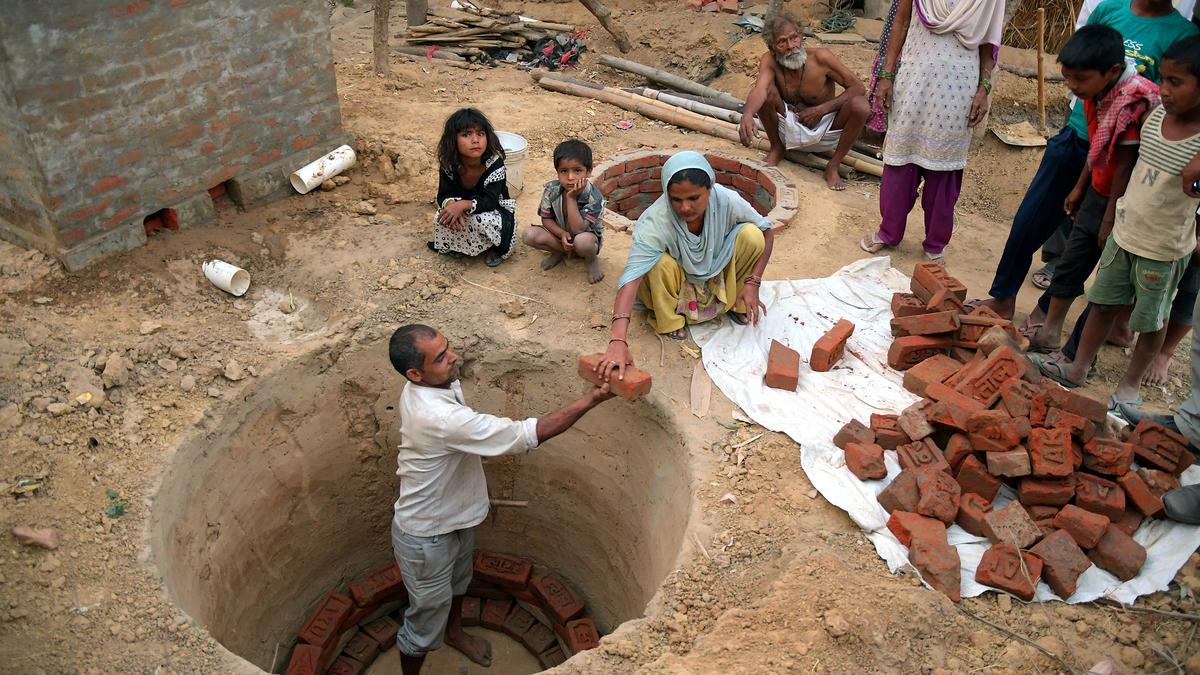On this World Health Day (April 7), as nations reflect on the foundations of human well-being, India stands tall with a transformative lesson: health and sanitation are not separate pursuits, but are two sides of a coin. Under the leadership of Prime Minister Narendra Modi, India has undertaken a sanitation and water revolution that has not only changed the way we live but also how we thrive.
Rural missions that made a difference
The story of modern India cannot be told without acknowledging the contribution of the Swachh Bharat Mission (SBM) Grameen and the Jal Jeevan Mission (JJM). These programmes are not just about toilets and tap water alone. They represent a shift in the soul of the nation. These rural missions symbolise dignity, equity, and, above all, health.
When the Prime Minister launched SBM from the ramparts of the Red Fort in 2014, he ignited a movement that has touched every Indian household, making it a people’s movement — a Jan Andolan that was anchored in behavioural change and inter-generational equity. By 2019, India had declared itself Open Defecation Free (ODF) and taken significant steps towards achieving SDG 6.2 (it focuses on achieving access to adequate and equitable sanitation and hygiene for all by 2030) and also ending open defecation, 11 years ahead of time.
The SBM has been a powerful public health intervention. A World Health Organization (WHO) report estimated from 2014 to 2019, through the sanitation mission, over three lakh diarrhoeal deaths were averted. The Gates Foundation reported in 2017 that there were 58% higher cases of wasting among children in non ODF areas. A UNICEF study (2017) found that 93% of women felt safer after getting a toilet at home and ODF families saved ₹50,000 annually in health-care costs, ensuring higher savings. The SBM has improved environmental outcomes. Groundwater contamination in ODF villages is 12.7 times less likely, ensuring long-term health resilience in rural communities. A (2024) Nature study estimated that 60,000 to 70,000 child deaths are prevented every year due to improved sanitation access. These outcomes are not incidental, they are the result of sustained political commitment, inter-ministerial coordination, and community ownership.
In 2019, the Jal Jeevan Mission was launched to ensure every rural household receives clean drinking water through a tap connection. This is more than infrastructure. It is an investment in human potential with far-reaching socio-economic impact. Research by Nobel Laureate Dr. Michael Kremer has shown that nearly 30% infant deaths can be reduced if safe water is made available to families for drinking and 1.36 lakh child deaths (under five years) can be prevented with universal tap coverage. WHO estimates suggest that the JJM could avert four lakh diarrhoeal deaths with safe drinking water supply at home. And, 5.5 crore hours are saved every day, mostly by women, who had earlier spent time fetching water. State Bank of India research finds that the availability of water within premises led to increased participation by women in agriculture and allied activities.
The Sujal and Swachh Gaon campaign, launched to integrate water, sanitation, and hygiene at the village level, has further galvanised communities. Thousands of villages have already been declared Swachh Sujal, which is an important marker of holistic public health transformation. Improved water and sanitation systems are also leading to reduced out-of-pocket expenditure for rural households, reinforcing the preventive health-care model.
On the ground
Sanitation and water are the first line of defence in public health. They are the invisible shield that protects communities from disease, women from indignity, and children from lost opportunity. A healthy nation is a productive nation. A clean nation is a resilient one.
Today, more than 80% of India’s rural households have tap water connections. Over 96% villages have been declared as ODF Plus, more than 5.07 lakh villages have solid waste management systems, and 5.23 lakh villages have liquid waste management systems in place.
Women are not just beneficiaries, they are also water testers, sanitation entrepreneurs, and local leaders. Over 2.48 million women have been trained to test water quality, and women-led Self-Help Groups are managing sanitation assets, recycling centres, and even sanitary napkin production. This is the vision of a Viksit Bharat where no child misses school because of a lack of water, no woman walks miles with a pot on her head, and no family loses a loved one to preventable illness.
The journey to health is the journey to dignity. A toilet brings privacy. Clean water brings opportunity. Waste management protects the environment. Each link in the sanitation chain connects directly to a healthier, safer society. The lessons we have learnt highlight the importance of inter-ministerial collaboration which is non-negotiable.
It is about convergence
Since, health is not the concern of one Ministry alone, it is the outcome of converged action across water, sanitation, nutrition, education, and rural development. We must recognise that India’s model is not insular, it is global. Our innovations, community-led models, and use of technology whether through real-time dashboards, Galvanizing Organic Bio-Agro Resources Dhan (or GOBARdhan) biogas plants, or plastic waste management units are blueprints for the world, especially the Global South. Lastly, we must continue to work through a mutual understanding that every rupee invested in Water, Sanitation and Hygiene (WASH) yields manifold returns in health, productivity, gender equity, and environmental sustainability.
India is committed towards progressing forward on the United Nations Sustainable Development Goals and this World Health Day, we need to acknowledge and remember that good health begins not in hospitals, but in homes with access to clean water, safe sanitation, and a shared resolve. As we move forward, India remains committed to sharing its journey, collaborating globally, and co-creating a cleaner, healthier, and more resilient world.
Swati Meena Naik is Joint Secretary, National Jal Jeevan Mission (NJJM)
Published – April 07, 2025 12:08 am IST
